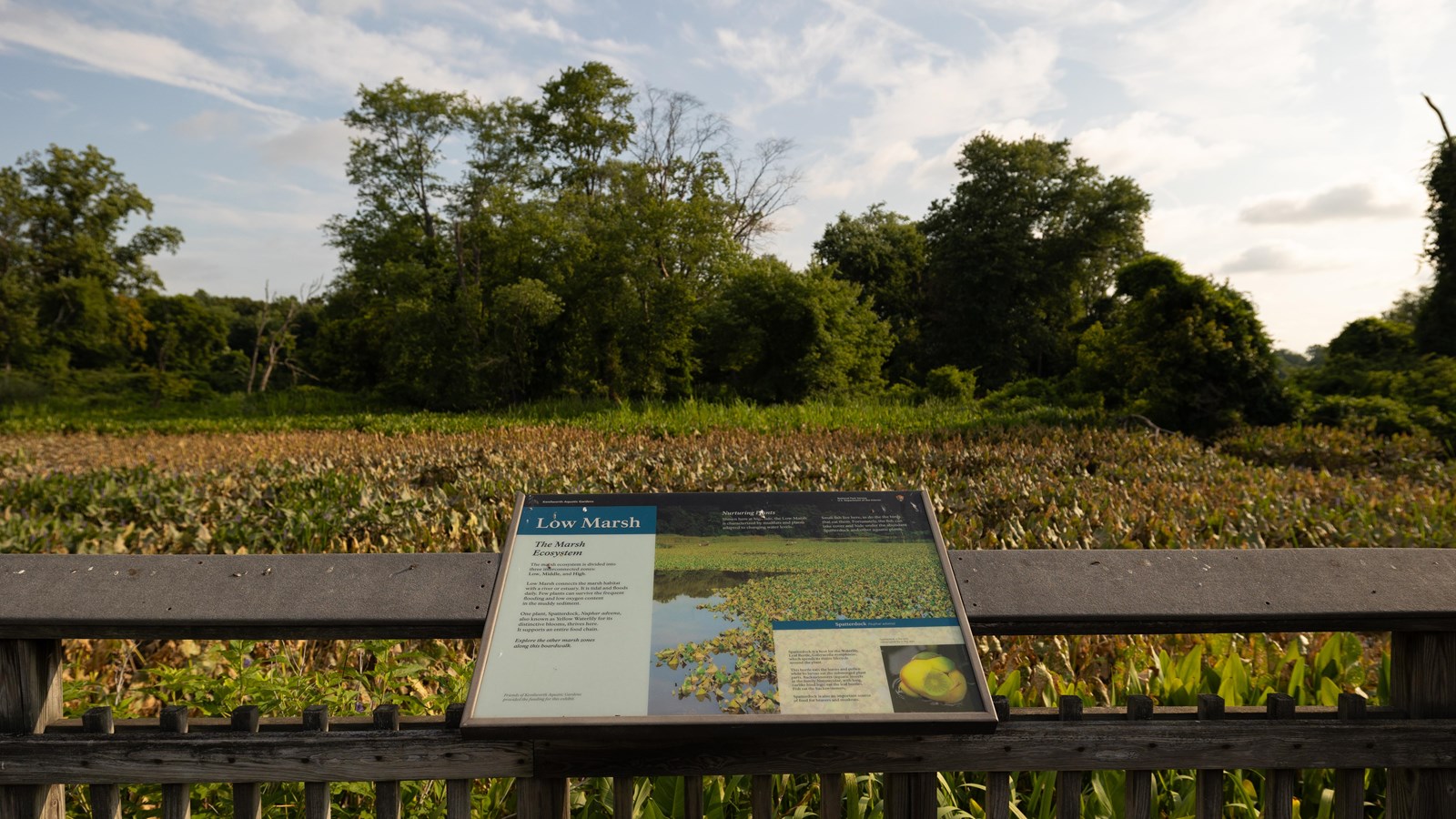Last updated: July 11, 2024
Place
Information Panel: Low Marsh

NPS / Kelsey Graczyk
Low Marsh
The Marsh Ecosystem
The marsh ecosystem is divided into three interconnected zones:
Low, Middle, and High.
Low Marsh connects the marsh habitat with a river or estuary. It is tidal and floods daily. Few plants can survive the frequent flooding and low oxygen content in the muddy sediment.
One plant, Spatterdock, Nuphar advena, also known as Yellow Waterlily for its distinctive blooms, thrives here. It supports an entire food chain.
Explore the other marsh zones along this boardwalk.
Nurturing Plants
Shown here at high tide, the Low Marsh is characterized by mudflats and plants adapted to changing water levels.
Small fish live here, as do the birds. that eat them. Fortunately, the fish can take cover and hide under the abundant Spatterdock and other aquatic plants.
Spatterdock is the only native water lily in this area.
Spatterdock is a host for the Water Lily Leaf Beetle, Galerucella nymphaeae, which spends its entire lifecycle around the plant.
This beetle eats the leaves and pollen while its larvae eat the submerged plant parts. Backswimmers (aquatic insects in the family Notonectidae, with long, oarlike hind legs) eat the leaf beetles.
Fish eat the backswimmers.
Spatterdock is also an important source of food for beavers and muskrats.
